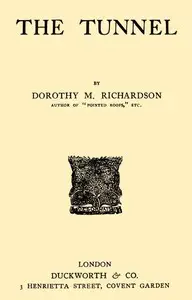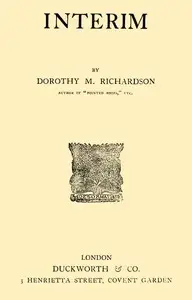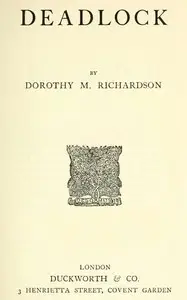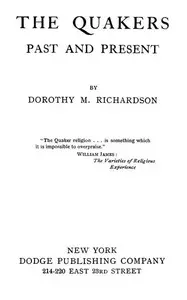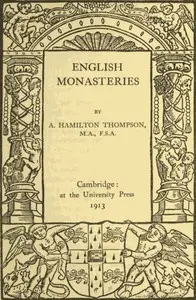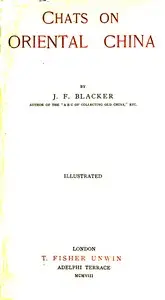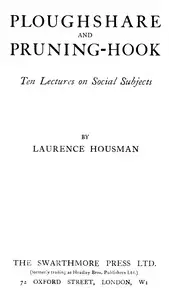"Revolving Lights: Pilgrimage, Volume 7" by Dorothy M. Richardson is a novel that explores the intricate thoughts and experiences of Miriam, a central character navigating the changing social landscape of the early 20th century. The story kicks off with Miriam pondering her role in London’s social circles, where she grapples with feelings of isolation amid socialists and Unitarian thinkers. Richardson's writing style focuses on Miriam's inner thoughts and keen observations, revealing her desire for genuine connections while she wrestles with her unique identity and societal pressures. The book examines themes of self-discovery, the burgeoning feminist movement, and the clash between personal reflection and societal expectations. Capturing Miriam’s introspective journey, it highlights the complex interplay between her individuality and the external demands of her time.

Revolving Lights: Pilgrimage, Volume 7
By Dorothy M. (Dorothy Miller) Richardson
Amidst a world of shifting social norms, a woman searches for her true self while navigating love, society, and the weight of expectation.
Summary
About the AuthorDorothy Miller Richardson was a British author and journalist. Author of Pilgrimage, a sequence of 13 semi-autobiographical novels published between 1915 and 1967—though Richardson saw them as chapters of one work—she was one of the earliest modernist novelists to use stream of consciousness as a narrative technique. Richardson also emphasises in Pilgrimage the importance and distinct nature of female experiences. The title Pilgrimage alludes not only to "the journey of the artist ... to self-realisation but, more practically, to the discovery of a unique creative form and expression".
Dorothy Miller Richardson was a British author and journalist. Author of Pilgrimage, a sequence of 13 semi-autobiographical novels published between 1915 and 1967—though Richardson saw them as chapters of one work—she was one of the earliest modernist novelists to use stream of consciousness as a narrative technique. Richardson also emphasises in Pilgrimage the importance and distinct nature of female experiences. The title Pilgrimage alludes not only to "the journey of the artist ... to self-realisation but, more practically, to the discovery of a unique creative form and expression".


